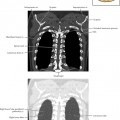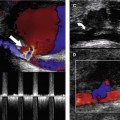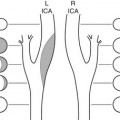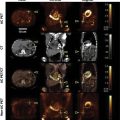If you’re facing both mental health and substance use challenges, you might wonder why recovery can feel so overwhelming. Dual diagnosis treatment recognizes how closely connected these issues are and works to address them together, rather than separately. By understanding what makes this approach different, you’ll see how integrated care can truly make a difference.
So, what exactly happens when both conditions are treated at the same time, and why does it matter for your long-term well-being?
Understanding the Connection Between Mental Health and Substance Use
Research indicates a substantial connection between mental health and substance use. Individuals experiencing co-occurring disorders, such as depression alongside a substance use disorder, may turn to drugs or alcohol as a coping mechanism for their mental health symptoms.
However, this approach can exacerbate both conditions, as self-medication often leads to a cycle where addiction and mental health issues mutually reinforce and worsen each other. Untreated mental health conditions significantly increase the likelihood of relapse in individuals with substance use disorders.
Dual diagnosis programs are a critical approach in these cases, as they offer integrated care that addresses both mental health and addiction simultaneously. This method is associated with improved outcomes, as it tailors treatment to address the specific needs of the individual, thereby supporting long-term recovery.
Key Components of a Dual Diagnosis Treatment Program
A dual diagnosis treatment program is designed to address both mental health and substance use disorders concurrently. Its effectiveness rests on several critical components.
An accurate diagnosis is fundamental, as it ensures that the treatment plan is tailored to address addiction and any co-occurring mental health disorders at the same time. Integrated therapeutic approaches are employed to help individuals manage the complex symptoms arising from dual diagnoses. These approaches may include cognitive-behavioral therapy and other evidence-based practices.
Medication management is also a key component, as it can help stabilize mental health conditions, making it easier for patients to engage in other forms of treatment.
The program often incorporates a holistic approach, which includes life skills training and the development of coping strategies. These elements are crucial for helping individuals manage day-to-day challenges and maintain recovery.
Peer support groups are another important aspect, as they provide a platform for sharing experiences, building accountability, and reinforcing a commitment to recovery. These groups can be instrumental in fostering a strong support network, which is essential for overcoming addiction and managing mental health challenges effectively.
Together, these components form a comprehensive strategy aimed at facilitating long-term recovery and improving overall well-being.
Types of Therapeutic Approaches in Dual Diagnosis Recovery
In addressing both substance use and mental health disorders, dual diagnosis recovery employs a range of therapeutic approaches to address the complex needs of individuals.
Acceptance and Commitment Therapy (ACT) is utilized to help individuals accept their thoughts and emotions without judgment, promoting psychological flexibility.
Cognitive-Behavioral Therapy (CBT) is implemented to identify and modify harmful thinking patterns that contribute to both substance use and mental health issues.
Motivational Interviewing (MI) aids in enhancing an individual’s intrinsic motivation, which is crucial for engaging in and maintaining recovery efforts.
Trauma Therapy is employed to provide a supportive environment for individuals to process and understand past traumatic events that may impact their addiction and mental health conditions.
The integration of these evidence-based approaches allows treatment teams to create comprehensive plans tailored to individual needs, thereby potentially improving the likelihood of sustained recovery.
Benefits of Integrated Care for Co-Occurring Disorders
Integrated care for individuals with co-occurring disorders, which involve both mental health and substance use issues, facilitates a comprehensive approach to recovery. By simultaneously addressing both conditions, this method aims to uncover the underlying causes of these disorders and develop customized treatment plans that cater to the specific needs of the individual.
Integrated care often incorporates evidence-based therapies such as Cognitive-Behavioral Therapy, which equips individuals with practical skills to manage emotional triggers and cravings, thereby minimizing the likelihood of relapse. For free recovery resources and worksheets to use before treatment, visit Recovered On Purpose.
The approach is implemented in a supportive environment that acknowledges and validates individual experiences, which may contribute to sustained engagement in the recovery process. This structured framework is designed to support long-term recovery outcomes by integrating multiple aspects of patient care.
Steps to Begin Your Dual Diagnosis Recovery Journey
Recognizing the benefits of integrated care is crucial for initiating recovery from co-occurring disorders. The first step involves completing a comprehensive assessment to identify both mental health and substance use disorder needs, which aids in developing a tailored treatment plan.
Integrated therapies, such as Cognitive Behavioral Therapy (CBT) or Acceptance and Commitment Therapy (ACT), are effective as they address potential triggers and promote healthy coping mechanisms. Participation in therapy sessions and peer support groups can enhance one’s commitment to recovery through shared experiences and support.
If applicable, explore medication management as a component of treatment. Developing an aftercare plan is also essential, incorporating regular support, access to 12-step programs, and ongoing therapy. This methodical approach is designed to support sustained recovery for individuals with a dual diagnosis.
Taking the First Step to Recovery
When you choose dual diagnosis treatment, you’re taking a powerful step toward lasting recovery. By addressing both your mental health and substance use challenges together, you give yourself the best chance to truly heal. With integrated care, tailored therapies, and ongoing support, you’ll build skills and resilience that empower you to face life’s ups and downs. Don’t wait—reach out and start your dual diagnosis recovery journey today, and discover the difference holistic, connected care can make.
Stay updated, free articles. Join our Telegram channel

Full access? Get Clinical Tree







